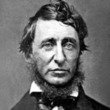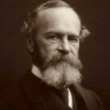Three Roads Back: How Emerson, Thoreau, and William James Responded to the Greatest Losses of Their Lives
(Libby/OverDrive eBook, Kindle)
Available Platforms
Description
From their acclaimed biographer, a final, powerful book about how Emerson, Thoreau, and William James forged resilience from devastating loss, changing the course of American thoughtIn Three Roads Back, Robert Richardson, the author of magisterial biographies of Ralph Waldo Emerson, Henry David Thoreau, and William James, tells the connected stories of how these foundational American writers and thinkers dealt with personal tragedies early in their careers. For Emerson, it was the death of his young wife and, eleven years later, his five-year-old son; for Thoreau, it was the death of his brother; and for James, it was the death of his beloved cousin Minnie Temple. Filled with rich biographical detail and unforgettable passages from the journals and letters of Emerson, Thoreau, and James, these vivid and moving stories of loss and hard-fought resilience show how the writers’ responses to these deaths helped spur them on to their greatest work, influencing the birth and course of American literature and philosophy.In reaction to his traumatic loss, Emerson lost his Unitarian faith and found solace in nature. Thoreau, too, leaned on nature and its regenerative power, discovering that “death is the law of new life,” an insight that would find expression in Walden. And James, following a period of panic and despair, experienced a redemptive conversion and new ideas that would drive his work as a psychologist and philosopher. As Richardson shows, all three emerged from their grief with a new way of seeing, one shaped by a belief in what Emerson called “the deep remedial force that underlies all facts.”An inspiring book about resilience and the new growth and creativity that can stem from devastating loss, Three Roads Back is also an extraordinary account of the hidden wellsprings of American thought.
More Details
Similar Titles From NoveList
Similar Authors From NoveList
Published Reviews
Publisher's Weekly Review
Ralph Waldo Emerson, Henry David Thoreau, and William James had their ideas solidified and their writing shaped by the deaths of loved ones, according to this stimulating posthumous survey from Richardson (William James: In the Maelstrom of American Modernism), who died in 2020. Using a technique he calls "documentary biography," which lets his subjects "tell their stories in their own words as much as possible" via their letters and journals, Richardson makes a case that the three can teach their readers great resilience, as each carried on despite the losses. In Richardson's account, Emerson lost his faith, resigned from his position as a minister, and became a naturalist as he was coping with the death of his wife, Ellen; Thoreau began ruminating on what became his "mature philosophical vision" as a result of his brother, John's, death; and out of Minnie Temple's early death "arrived" her cousin James's central psychological insight of "resisting the ego to the world." Richard moves swiftly and confidently among his subjects, and successfully ditches "a detached, critical, or judgmental" approach in favor of a moving, candid group portrait. Fans and students of American literature will find this worth picking up. (Jan.)
Kirkus Book Review
Illuminating stories of how three of America's most celebrated authors charted pathways to healing. In this brief but remarkably rich study, Richardson (1934-2020) explores how three giants of American thought--Emerson, Thoreau, and William James--struggled with and found vital ways of transcending the grief brought on by losing a loved one. The author, who has written celebrated full-length biographies of each of the figures, provides what he terms a "documentary biography," deftly guiding readers through copious quotations drawn from his subjects' letters and journals. Such an approach, he explains, seeks to "facilitate a personal, even sympathetic, connection--rather than a detached, critical, or judgmental connection--between the reader and the subject." This aim is vividly realized in the book's informed and deeply moving considerations of responses to loss. Memorably, we hear from Emerson on his revelatory visit to the Jardin des Plantes in Paris, which provoked in him a salvific sense of "the wonder and power and interconnectedness of Nature" after the death of his young wife; Thoreau, who, in the aftermath of his brother's death, documented his emerging understanding of natural processes of destruction and creation as ultimately life-affirming; and James, whose cherished cousin's death finally provoked in him a hard-won awareness that the cultivation of self-discipline and self-government could be the vehicle for extraordinary personal resilience. With great sensitivity, Richardson explains the relationship between personal trauma and the philosophical insights that might be generated in its wake, and his restrained but clarifying commentary allows his subjects' voices to compel our attention. The author expertly frames the emotional and intellectual lives of these three significant artistic figures and demonstrates the relevance, for anyone, of what they accomplished in their profound negotiations with loss. A stirring and keenly perceptive examination of bereavement and recovery. Copyright (c) Kirkus Reviews, used with permission.
Publishers Weekly Reviews
Ralph Waldo Emerson, Henry David Thoreau, and William James had their ideas solidified and their writing shaped by the deaths of loved ones, according to this stimulating posthumous survey from Richardson (William James: In the Maelstrom of American Modernism), who died in 2020. Using a technique he calls "documentary biography," which lets his subjects "tell their stories in their own words as much as possible" via their letters and journals, Richardson makes a case that the three can teach their readers great resilience, as each carried on despite the losses. In Richardson's account, Emerson lost his faith, resigned from his position as a minister, and became a naturalist as he was coping with the death of his wife, Ellen; Thoreau began ruminating on what became his "mature philosophical vision" as a result of his brother, John's, death; and out of Minnie Temple's early death "arrived" her cousin James's central psychological insight of "resisting the ego to the world." Richard moves swiftly and confidently among his subjects, and successfully ditches "a detached, critical, or judgmental" approach in favor of a moving, candid group portrait. Fans and students of American literature will find this worth picking up. (Jan.)
Copyright 2022 Publishers Weekly.Reviews from GoodReads
Citations
Richardson, R. D., & Marshall, M. (2023). Three Roads Back: How Emerson, Thoreau, and William James Responded to the Greatest Losses of Their Lives . Princeton University Press.
Chicago / Turabian - Author Date Citation, 17th Edition (style guide)Richardson, Robert D and Megan Marshall. 2023. Three Roads Back: How Emerson, Thoreau, and William James Responded to the Greatest Losses of Their Lives. Princeton University Press.
Chicago / Turabian - Humanities (Notes and Bibliography) Citation, 17th Edition (style guide)Richardson, Robert D and Megan Marshall. Three Roads Back: How Emerson, Thoreau, and William James Responded to the Greatest Losses of Their Lives Princeton University Press, 2023.
Harvard Citation (style guide)Richardson, R. D. and Marshall, M. (2023). Three roads back: how emerson, thoreau, and william james responded to the greatest losses of their lives. Princeton University Press.
MLA Citation, 9th Edition (style guide)Richardson, Robert D., and Megan Marshall. Three Roads Back: How Emerson, Thoreau, and William James Responded to the Greatest Losses of Their Lives Princeton University Press, 2023.
Copy Details
| Collection | Owned | Available | Number of Holds |
|---|---|---|---|
| Libby | 1 | 1 | 0 |































